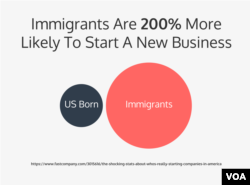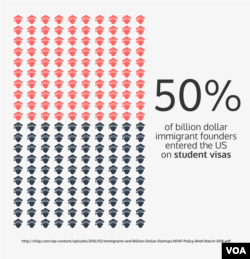Seventeen universities filed legal papers Monday against a Trump administration travel ban on immigrants from seven Muslim-majority nations, calling it "serious and chilling" to international education.
The filing says the executive order threatens schools' "continuing ability to attract these individuals and thus meet their goals of educating tomorrow's leaders from around the world."
An amicus brief is filed in support of a lawsuit. This brief supports a lawsuit filed in New York against the travel ban against immigrants from Iran, Iraq, Libya, Somalia, Sudan, Syria and Yemen.
The universities that filed the brief are Brown, Carnegie Mellon, University of Chicago, Columbia, Cornell, Dartmouth, Duke, Emory, Harvard, John Hopkins, Massachusetts Institute of Technology, Northwestern, University of Pennsylvania, Princeton, Stanford, Vanderbilt and Yale.
"Diversity promotes the free exchange of ideas, encouraging individuals to consider issues from different perspectives, and giving students and faculty a greater understanding of our global, pluralistic society," the brief states.
This adds to the growing number of U.S. universities and colleges that publicly oppose the travel ban and its impact on international students and American academia. Another brief was filed by eight universities in Massachusetts, including Boston College, Boston University, Brandeis University, Harvard College, Massachusetts Institute of Technology, Northeastern University, Tufts College and Worcester Polytechnic Institute.
"The Executive Order divides students and their families, impairs the ability of American universities to draw the finest international talent, and inhibits the free exchange of ideas," the 17 universities state in the legal filing against the ban.
"Safety and security concerns can be addressed in a manner that is consistent with the values America has always stood for, including the free flow of ideas and people across borders and the welcoming of immigrants to our universities," the brief states.
And Dartmouth and the University of Pennsylvania, who are hosting educational conferences, say they are concerned that many of their participants are unable or unwilling to attend because of travel restrictions into the United States.
The United States has long been the favorite academic destination for international students.
There are more than a million international students in the U.S., a number that has nearly doubled in the past decade. They added $32.4 billion to the U.S. economy last year. About 15,000 international students are affected by the travel ban with about 12,000 coming from Iran.
A study from the National Foundation for American Policy, a non-partisan think tank, found that 44 of the 87 startups valued over $1 billion were started by immigrants. Of these companies, almost half of the immigrants came to the United States as an international student.
Since 2000, 31 of 78 American recipients of the Nobel Prize -- about 40 percent -- have been immigrants. In 2016, all of America's Nobel Prize winners were immigrants.
American universities and colleges with the largest population of international students are New York University (15,543), University of Southern California (13,340), Arizona State University (12,751), Columbia University (12,740), University of Illinois (12,085), Northeastern University (11,702), University of California-Los Angeles (11,513), Purdue University (10,563), Boston University (8,455), University of Washington (8,259), Michigan State University (8,256), University of Texas (8,145), Pennsylvania State University (8,084) and University of Michigan (7,630), in that order, according to the Institute of International Education.
The filing says the executive order threatens schools' "continuing ability to attract these individuals and thus meet their goals of educating tomorrow's leaders from around the world."
An amicus brief is filed in support of a lawsuit. This brief supports a lawsuit filed in New York against the travel ban against immigrants from Iran, Iraq, Libya, Somalia, Sudan, Syria and Yemen.
The universities that filed the brief are Brown, Carnegie Mellon, University of Chicago, Columbia, Cornell, Dartmouth, Duke, Emory, Harvard, John Hopkins, Massachusetts Institute of Technology, Northwestern, University of Pennsylvania, Princeton, Stanford, Vanderbilt and Yale.
"Diversity promotes the free exchange of ideas, encouraging individuals to consider issues from different perspectives, and giving students and faculty a greater understanding of our global, pluralistic society," the brief states.
This adds to the growing number of U.S. universities and colleges that publicly oppose the travel ban and its impact on international students and American academia. Another brief was filed by eight universities in Massachusetts, including Boston College, Boston University, Brandeis University, Harvard College, Massachusetts Institute of Technology, Northeastern University, Tufts College and Worcester Polytechnic Institute.
"The Executive Order divides students and their families, impairs the ability of American universities to draw the finest international talent, and inhibits the free exchange of ideas," the 17 universities state in the legal filing against the ban.
"Safety and security concerns can be addressed in a manner that is consistent with the values America has always stood for, including the free flow of ideas and people across borders and the welcoming of immigrants to our universities," the brief states.
And Dartmouth and the University of Pennsylvania, who are hosting educational conferences, say they are concerned that many of their participants are unable or unwilling to attend because of travel restrictions into the United States.
The United States has long been the favorite academic destination for international students.
There are more than a million international students in the U.S., a number that has nearly doubled in the past decade. They added $32.4 billion to the U.S. economy last year. About 15,000 international students are affected by the travel ban with about 12,000 coming from Iran.
A study from the National Foundation for American Policy, a non-partisan think tank, found that 44 of the 87 startups valued over $1 billion were started by immigrants. Of these companies, almost half of the immigrants came to the United States as an international student.
Since 2000, 31 of 78 American recipients of the Nobel Prize -- about 40 percent -- have been immigrants. In 2016, all of America's Nobel Prize winners were immigrants.
American universities and colleges with the largest population of international students are New York University (15,543), University of Southern California (13,340), Arizona State University (12,751), Columbia University (12,740), University of Illinois (12,085), Northeastern University (11,702), University of California-Los Angeles (11,513), Purdue University (10,563), Boston University (8,455), University of Washington (8,259), Michigan State University (8,256), University of Texas (8,145), Pennsylvania State University (8,084) and University of Michigan (7,630), in that order, according to the Institute of International Education.






